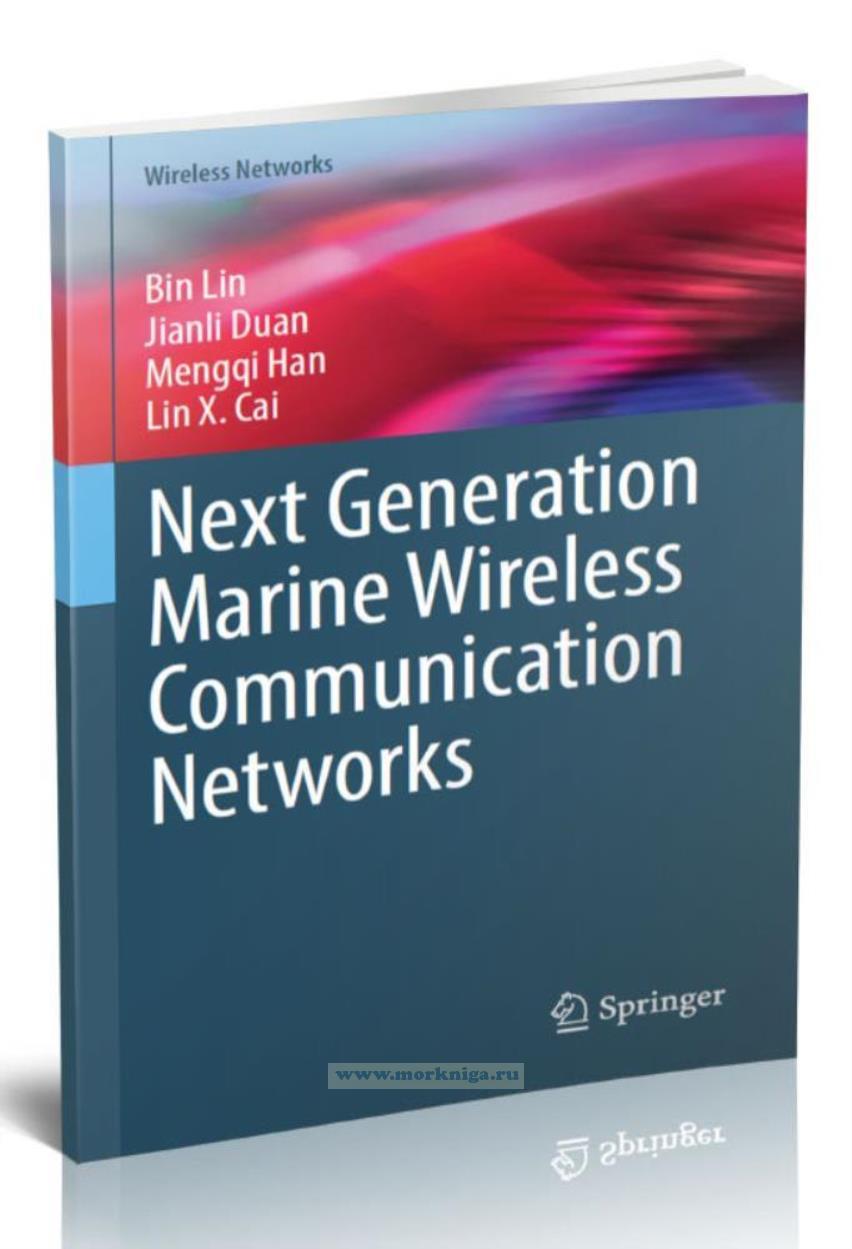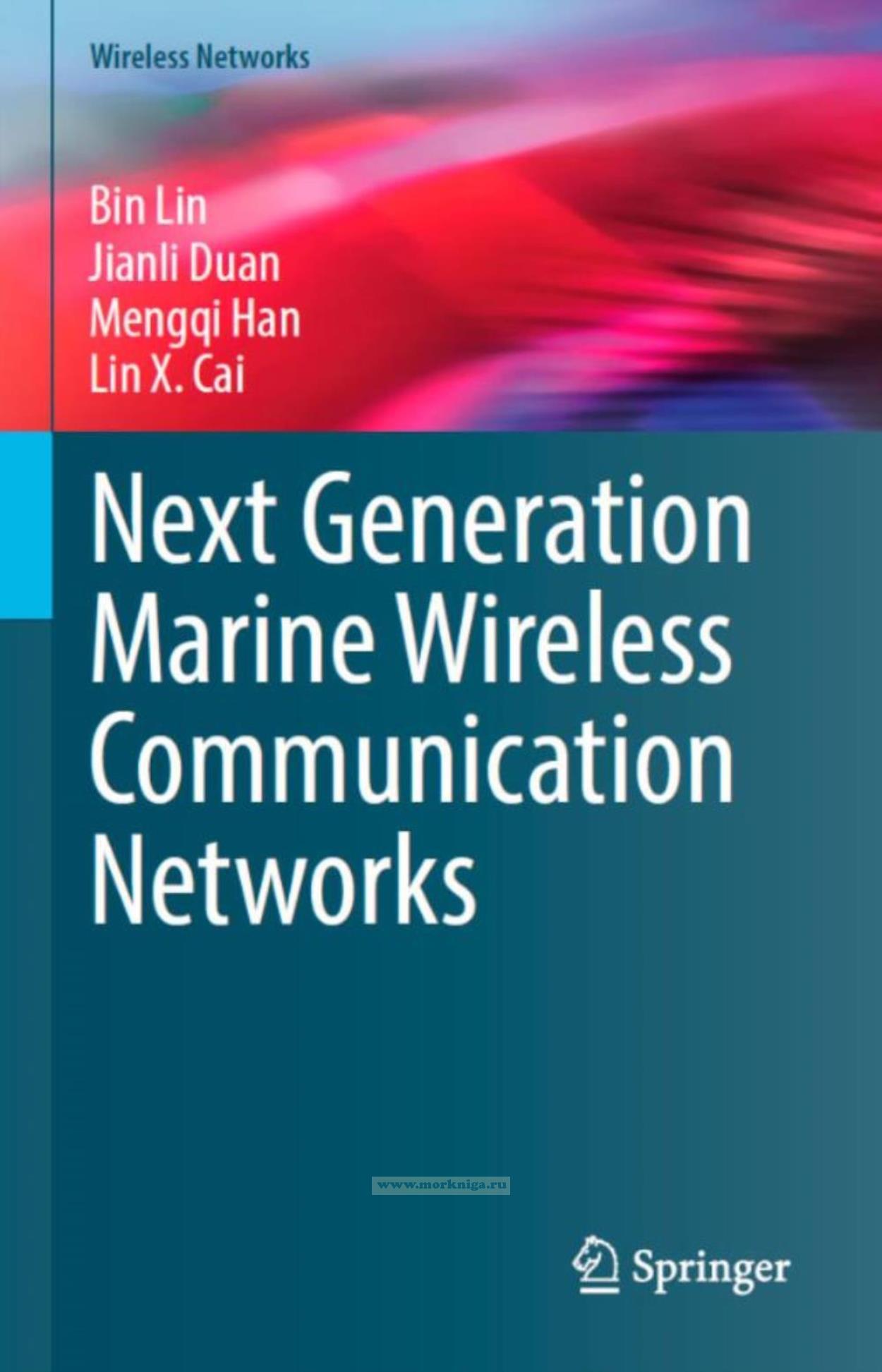Сб с 10 до 16
Next Generation Marine Wireless Communication Networks/Морские беспроводные коммуникационные сети нового поколения
Книга на английском языке.
This book aims to address these challenges in the design and development of next generation Mwcnts. Specifically, we will explore the key technologies in the following general categories to improve the network performance, including the network deployment, the physical layer channel coding, the link layer resource management, and the network layer routing design. The objective of the book is to provide a comprehensive guide for the audience to understand the design principle and development of Mwcnts in support of numerous maritime services.
Contents
1 Introduction
1.1 Overview of Marine Wireless Communications and Networks (MWCNs)
1.1.1 Maritime Applications in MWCNs
1.1.2 Current Marine Wireless Communication Networks
1.1.3 The Next Generation Marine Wireless Communication Networks
1.2 Challenges
1.2.1 Deployment Challenges
1.2.2 Physical Layer Challenges
1.2.3 Link Layer Challenges
1.2.4 Network Layer Challenges
1.3 Organization of the Book
References
2 Topology Optimization of MWCN
2.1 Background
2.2 Related Works
2.3 Network Model and Problem Formulation
2.3.1 Network Model
2.3.2 Energy Model
2.3.3 Problem Formulation
2.4 Ant Colony Based Efficient Topology Optimization (AC-ETO)
2.4.1 Algorithm Description
2.4.2 Computational Complexity Analysis
2.5 Simulations and Discussions
2.5.1 Performance Validation in Small Scale to Middle Scale Networks
2.5.2 Performance Analysis of Gurobi and AC-ETO in Different Network Scenarios
2.5.3 Performance Comparison of AC-ETO and a Greedy Algorithm
2.6 Conclusion
References
3 Autoencoder with Channel Estimation for Marine Communications
3.1 Background
3.2 Typical OFDM Communication Systems
3.3 Proposed OFDM Autoencoder
3.3.1 CNN-Based OFDM Autoencoder
3.3.2 Coded CNN-Based OFDM Autoencoder Using LSTM
3.3.3 CNN-Based Channel Estimation
3.3.4 Model Training
3.4 Simulation Results
3.4.1 AWGN and Fading Channels
3.4.2 Channel Estimation
3.5 Conclusion
References
4 Decentralized Reinforcement Learning-Based Access Control for Energy Sustainable Underwater Acoustic Sub-Network of MWCN
4.1 Background
4.2 Related Works
4.3 Performance Analysis of ESUN with Energy Harvesting
4.3.1 System Model
4.3.2 Analysis of ESUN Nodes
4.3.3 Optimization Problem
4.4 Learning-Based Random Access for ESUN Nodes
4.5 Performance Evaluation
4.6 Conclusions
References
5 Opportunistic Routing with Q-Learning for Marine Wireless Sensor Networks
5.1 Background
5.2 Related Works
5.3 System Model
5.3.1 Network Architecture
5.3.2 Q-Learning Model
5.4 EDORQ Algorithm
5.4.1 Overview of EDORQ
5.4.2 Void Detection Based Candidate Set Selection
5.4.3 Q-Learning Based Candidate Set Coordination
5.4.4 Summary
5.5 Simulation Results and Analysis
5.5.1 Simulation Setup
5.5.2 Simulation Metrics
5.5.3 Simulation Results
5.6 Conclusions
References
6 Conclusions and Future Directions
6.1 Conclusions
6.2 Future Research Directions
References
Index

